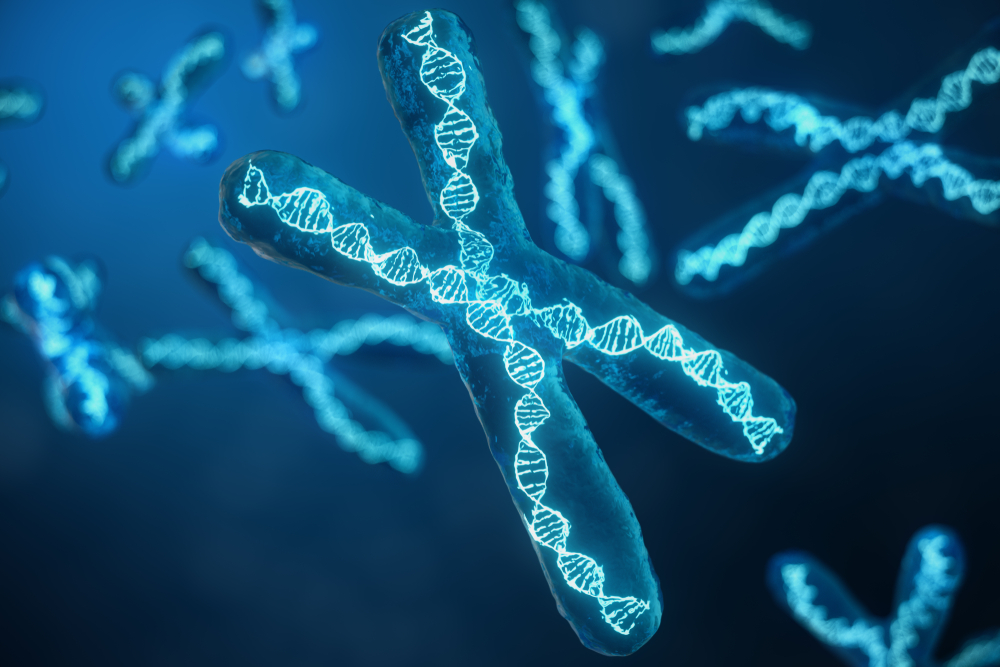


Chromosome studies look at the number and structure of chromosomes in cells. Chromosomes contain genetic information in the form of tightly packaged DNA and at certain times when cells are dividing they can be viewed under a microscope.
Chromosomes are normally present in 23 pairs or 46 chromosomes. One copy of each chromosome comes from our mother in the egg and the other copy from our father in the sperm. There are 22 pairs of chromosomes which are the same in both males and females with the other pair being the sex chromosomes - a pair of X chromosomes in females and one X and one Y in males.
The test can tell if the right number of chromosomes are present or if there are whole chromosomes missing or extra ones present. Sometimes, only small fragments of a chromosome are missing or duplicated. In each case the changes result in too little or too much genetic information causing health and development problems.
Large changes such as missing or extra whole chromosomes or large pieces lost or duplicated can be detected by looking at the chromosomes through a microscope. Special stains make the chromosomes appear to have bands that allows the specialist scientist to identify when pieces may be lost, gained, or rearranged and to report the changes using the bands as markers.
Very small changes may still cause problems but cannot be detected visually, in this case the studies will require a Chromosomal Microarray test which can pick up these tiny changes.
Chromosome studies can help to diagnose certain genetic conditions, sometimes explain the cause of certain cancers or reoccurring miscarriages.
Prenatal
If an ultrasound screening test during pregnancy identifies possible physical changes of the developing baby, a chromosome test may be required using cells from the amniotic fluid or a chorionic villus sample (CVS) to detect a condition such as Down syndrome (three copies or trisomy of Chromosome 21).
Childhood
If a child is born with some types of physical abnormalities or shows signs of slow development, chromosome studies may be able to pinpoint a cause for the condition and can be used to help in determining the risk of the same problem occurring in subsequent pregnancies.
Adults
Adults with infertility or with recurrent miscarriage may be tested to see if there is a genetic cause. Sometimes, bits of genetic material are swapped between chromosomes (called translocations) and may result in a new gene being produced which increases the risk of developing certain types of cancer. For this reason, newly diagnosed patients with leukaemia or lymphoma will have a chromosome analysis performed.
Sample
Chromosome studies can usually be done using the white cells found in blood but sometimes a different sample will be required depending on the reason for testing (eg. amniotic fluid or CVS for pre-natal tests).
Any preparation?
None.
Reading your test report
Chromosome reports can be very complex and need to be carefully interpreted. Only the simplest examples are described here.
The choice of tests your doctor makes will be based on your medical history and symptoms. It is important that you tell them everything you think might help.
You play a central role in making sure your test results are accurate. Do everything you can to make sure the information you provide is correct and follow instructions closely.
Talk to your doctor about any medications you are taking. Find out if you need to fast or stop any particular foods or supplements. These may affect your results. Ask: